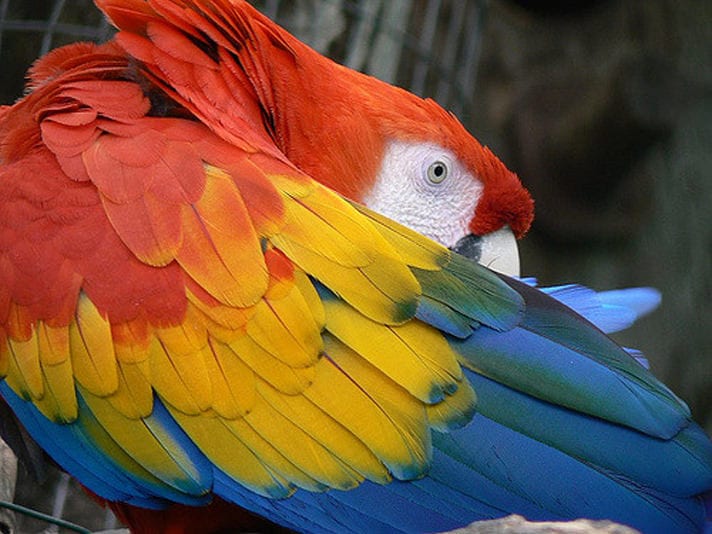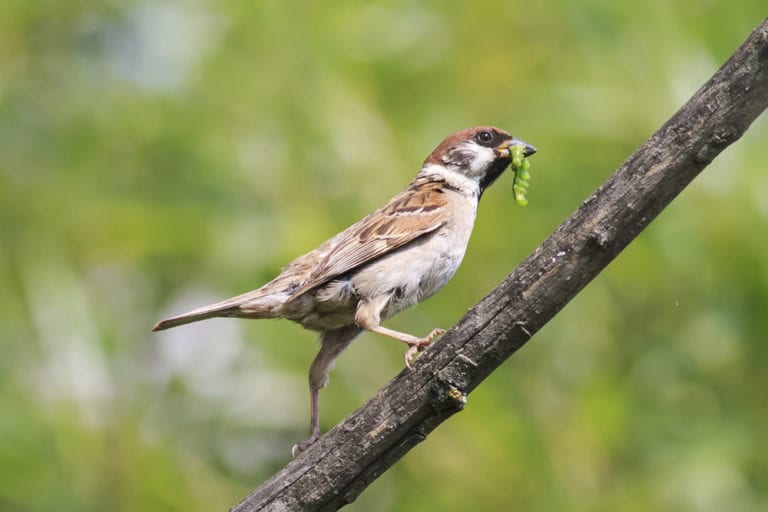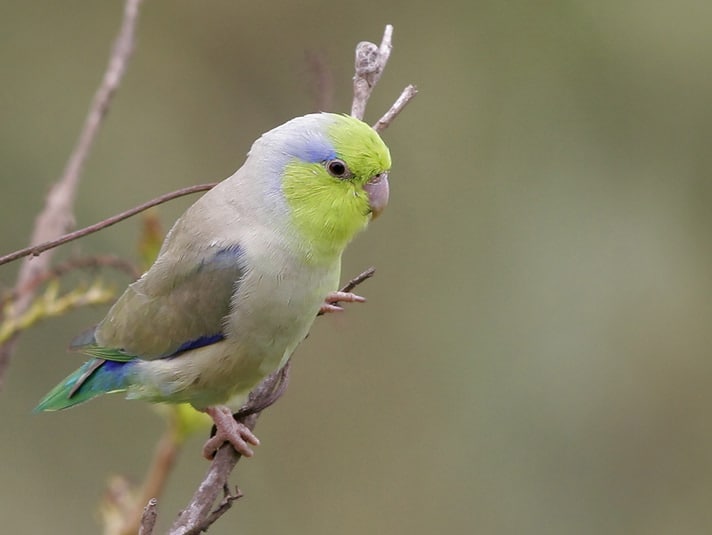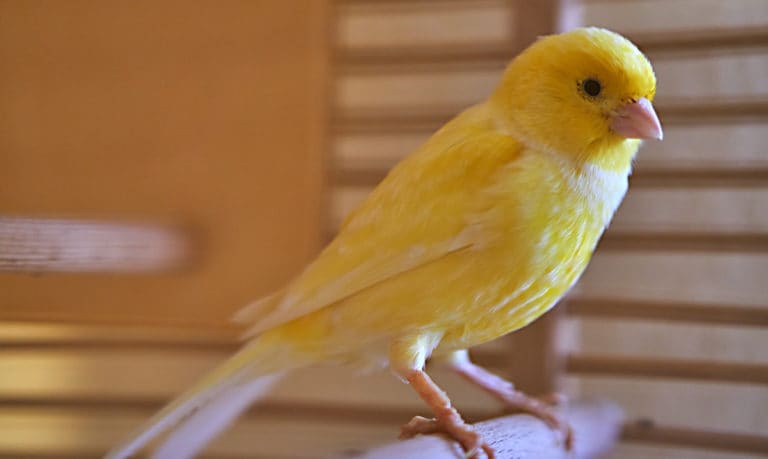We all know that pet birds are masters at hiding signs of illness. In nature, weak birds or those showing signs of disease are usually the first to be removed from the flock by predators. Of course, in the safety of our homes, our pet birds don’t need to hide illness; however, this is not something that a bird has conscious control over.
By the time a bird shows signs of being sick, it is often quite ill and may actually be in a life-threatening situation. We all know that sitting on the bottom of the cage, fluffed up, with beak and head tucked under a wing during the day, or sitting with eyes closed most of the day are common symptoms displayed by a sick pet bird. Sneezing, rapid breathing, regurgitating, having overt changes to the droppings or bleeding are also all signs of a very sick bird.
For owners who often spend a lot of time observing and playing with their pet bird, subtle changes to a bird’s behavior are usually the first clues that something is amiss. But bird owners also should purchase and use a good-quality scale to measure their bird’s weight on a regular basis. Weighing your pet birds weekly can be invaluable. Weight loss can be so subtle that you won’t be able to feel it when picking up a bird, but the loss may actually be significant. For a small parrot, a weight loss of few grams can indicate a sick bird. By the time you can feel muscle loss around the keel, testing may reveal that the bird is very ill. At the other end of the spectrum, rapid weight gain can give an owner and the bird’s veterinarian a heads-up that a hen is cycling and might begin producing eggs soon. Weight gain over time can be an indicator that a bird is consuming too many calories or is possibly developing an internal problem (fluid build up in the body cavity, a tumor or mass, for example).
Problem Signs
One subtle change that can result in a Eureka! moment is when you suddenly realize that your normally chatty bird hasn’t laughed, called the dog or carried on one of its normal avian conversations between itself and its imaginary playmate. For many ill birds, a decrease in vocalization can be the first sign that it is ill.
This doesn’t necessarily mean that the bird is suffering from an avian respiratory problem or one involving the beak, tongue or oral cavity, either. It can be a sign of any kind of medical problem. (Of course, a change in vocalization, meaning a bird sounding hoarse, developing a squeak or producing unusual sounds when breathing, can indicate a respiratory problem.) If your bird suddenly stops talking, vocalizing or making its usual morning or evening screaming sessions, this should prompt a visit to your avian veterinarian.
Feather picking can be a sign of a problem on the inside of a bird and not always something related to the feathers themselves. For example, a bird may begin picking out feathers under their right wing over their back when they’re developing air sacculitis on that side.
One common sign that a bird might not be feeling well is if it suddenly becomes a picky or fussy eater. A bird that loves its veggies or fruit treat might suddenly stop eating those entirely and begin consuming only pellets. Or the opposite occurs, and the bird stops eating seeds or pellets, choosing to eat only fresh foods daily instead. Anytime you notice your bird developing a drastic change in its eating habits, look into it further.
A change in water consumption should also be a clue that something is wrong with a bird. It can be something as straightforward as the start of reproductive activity or something as serious as kidney disease. A change in a bird’s interactive behavior can also occur when it is ill. A normally friendly, playful bird might suddenly want to stay in its cage or it might become grumpy, snapping or even biting its favorite person. Or conversely, a happy, independent bird might suddenly become overly cuddly or clingy. These behaviors can be your bird’s way of telling you that something is wrong.
Reproductive Influences On Bird Behavior
Reproductive activity can also affect a bird’s behavior. Birds that are hormonal often become cage territorial or prevent an owner from reaching into the cage. A bird might begin regurgitating to a favorite toy or person.
Males are more likely to engage in masturbation activities on an owner’s arm, shoe, knee or shoulder. Female birds might sit low on a perch and make strange chirping noises and at the same time flick or shake her wings, which is a signal meant to solicit breeding behavior from a male bird. A bird of either sex might begin staying on the bottom of the cage, protectively sitting on a bell, nut or toy. Many owners are surprised to find that a male bird might also perform this pseudo-incubation.
I used to have a pet blue-and-gold macaw, Toby, and every summer he would take his one of his favorite bird toys and sit on it for several weeks until his hormones began abating. If a hen actually lays an egg, she might begin sitting on it and protecting it, attempting to keep all people away from her egg and cage. By closely observing your pet bird’s behavior, it is possible to identify many problems before they become major illness.
If you notice a change in behavior, call your avian veterinarian for an appointment to have it checked out. Trust your instincts. If your avian veterinarian performs a physical examination and can’t find anything wrong, and you believe that there is a problem, ask your vet to perform some tests. With sub-clinical illness, the only way to uncover the problem is by performing appropriate diagnostic tests. While a physical examination can be very helpful, especially with advanced disease, there might be nothing overt on the physical.
By: Chewy Editorial
Featured Image: Via Angelo Rossi/Flickr
Share:









